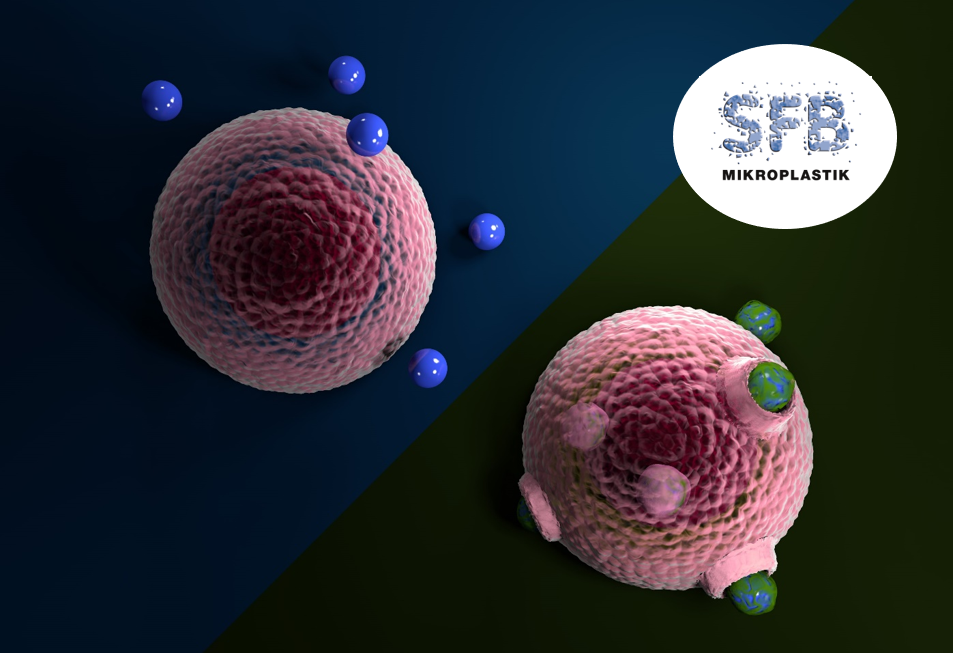Press releases
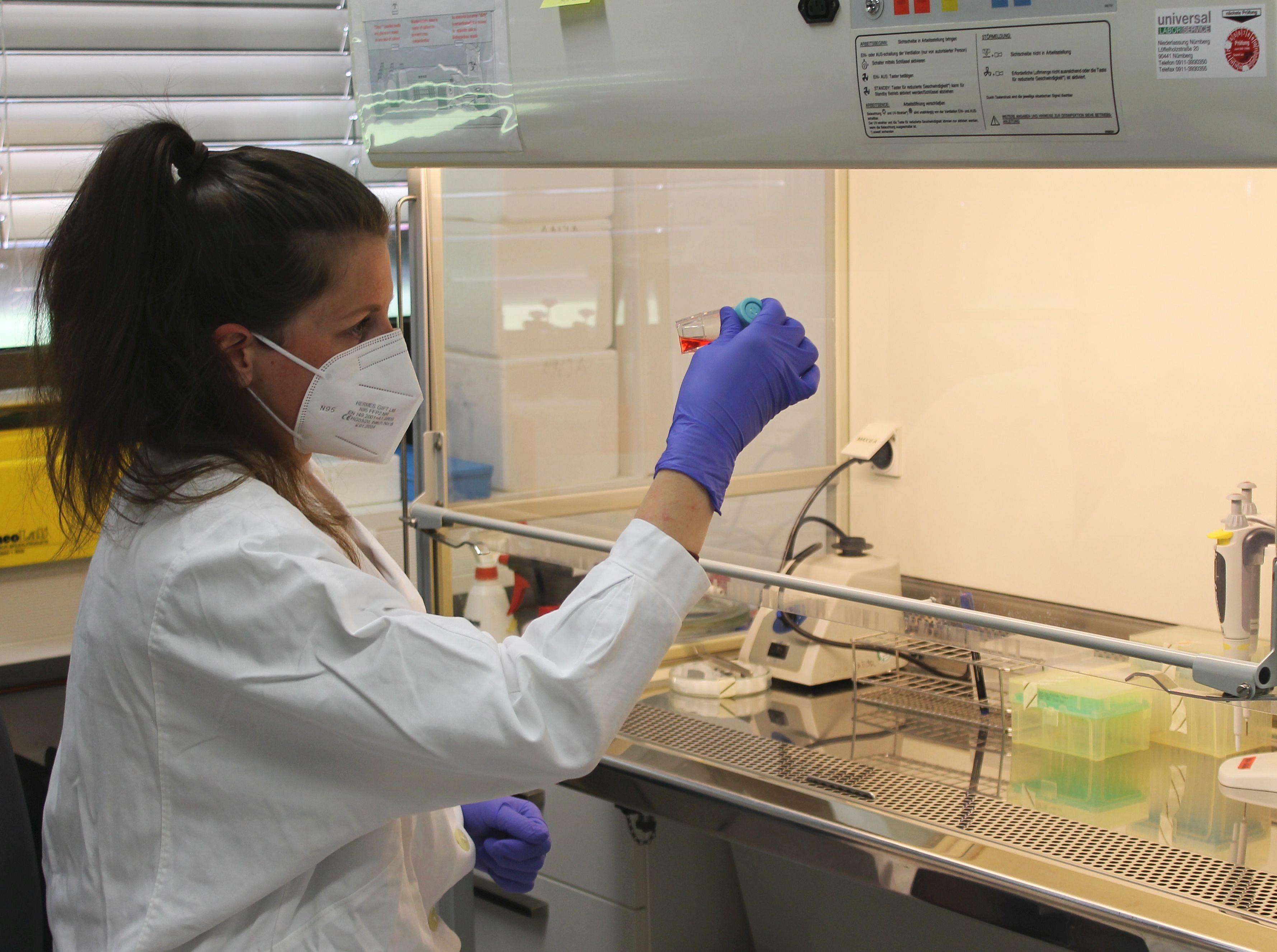
© UBT / Chr. Wißler.
Microplastics in human tissue samples: International study warns against drawing premature conclusions
The distribution of microplastics and nanoplastics in the environment, the potential of human exposure and particle uptake, and the absorption of these particles into tissues are topics that are being intensively researched worldwide. An international research group of the EU project "PlasticsFatE" under the leadership of Prof. Dr. Christian Laforsch at the University of Bayreuth has evaluated international research literature on these issues. The results presented in the journal "NanoImpact" show: Concerning the risks for humans, the evidence is less certain than the broad spectrum of publications might suggest.
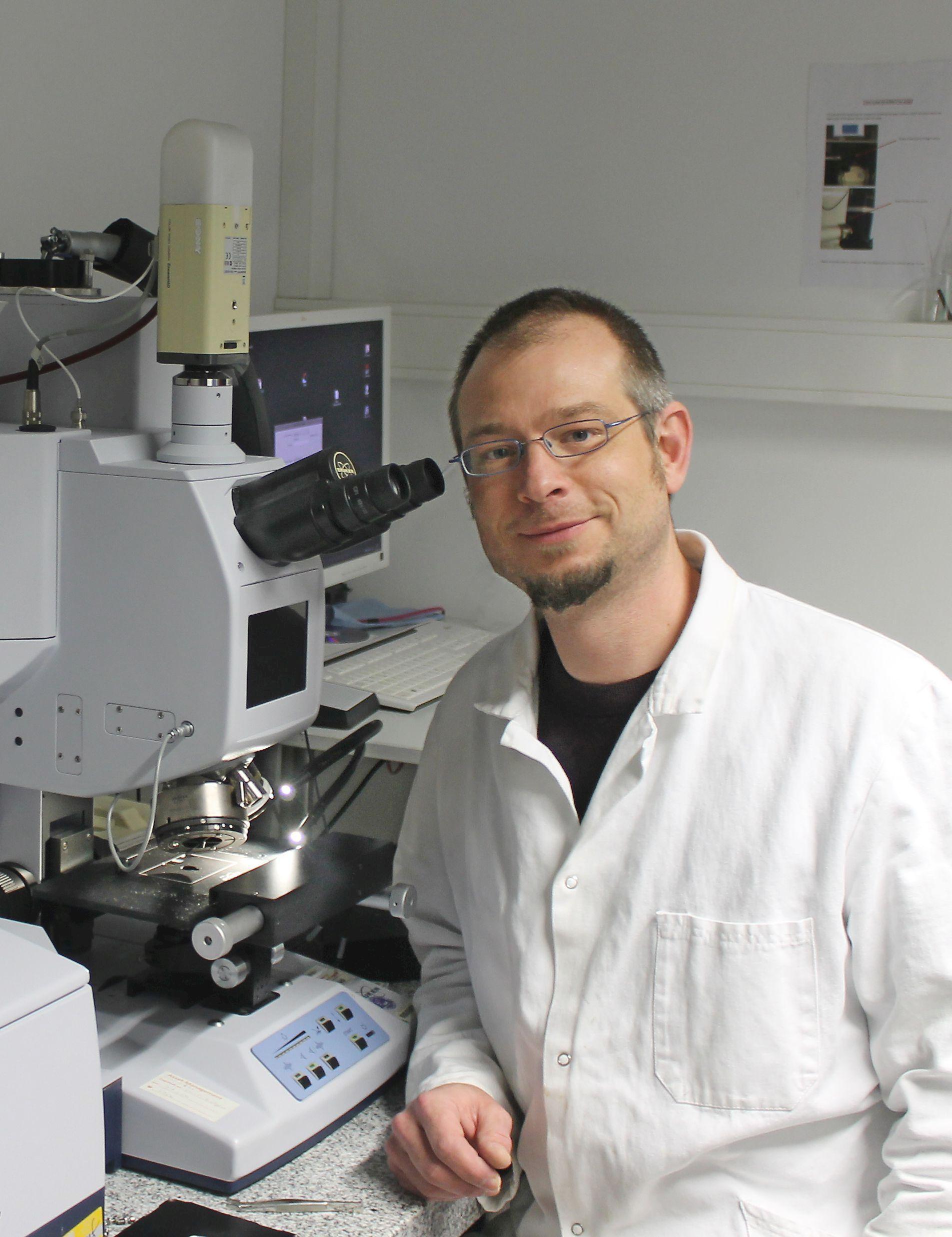
© UBT / Chr. Wißler.
Young scientist at the University of Bayreuth featured as "Highly Cited Researcher 2022”
Dr. Martin Löder, environmental researcher at the University of Bayreuth, has been featured as a "Highly cited researcher 2022" by the U.S. company Clarivate. This is shown by the ranking "Highly cited researchers 2022" published by the US company Clarivate. The internationally renowned ranking identifies those researchers whose scientific publications from the period 2011 to 2021 are cited most frequently to date. The Bayreuth scientist is a member of the Bayreuth Center of Ecology and Environmental Research (BayCEER) and the DFG Collaborative Research Center 1357 "Microplastics" at the University of Bayreuth. Here he has been teaching and researching at the Chair of Animal Ecology I since 2014.
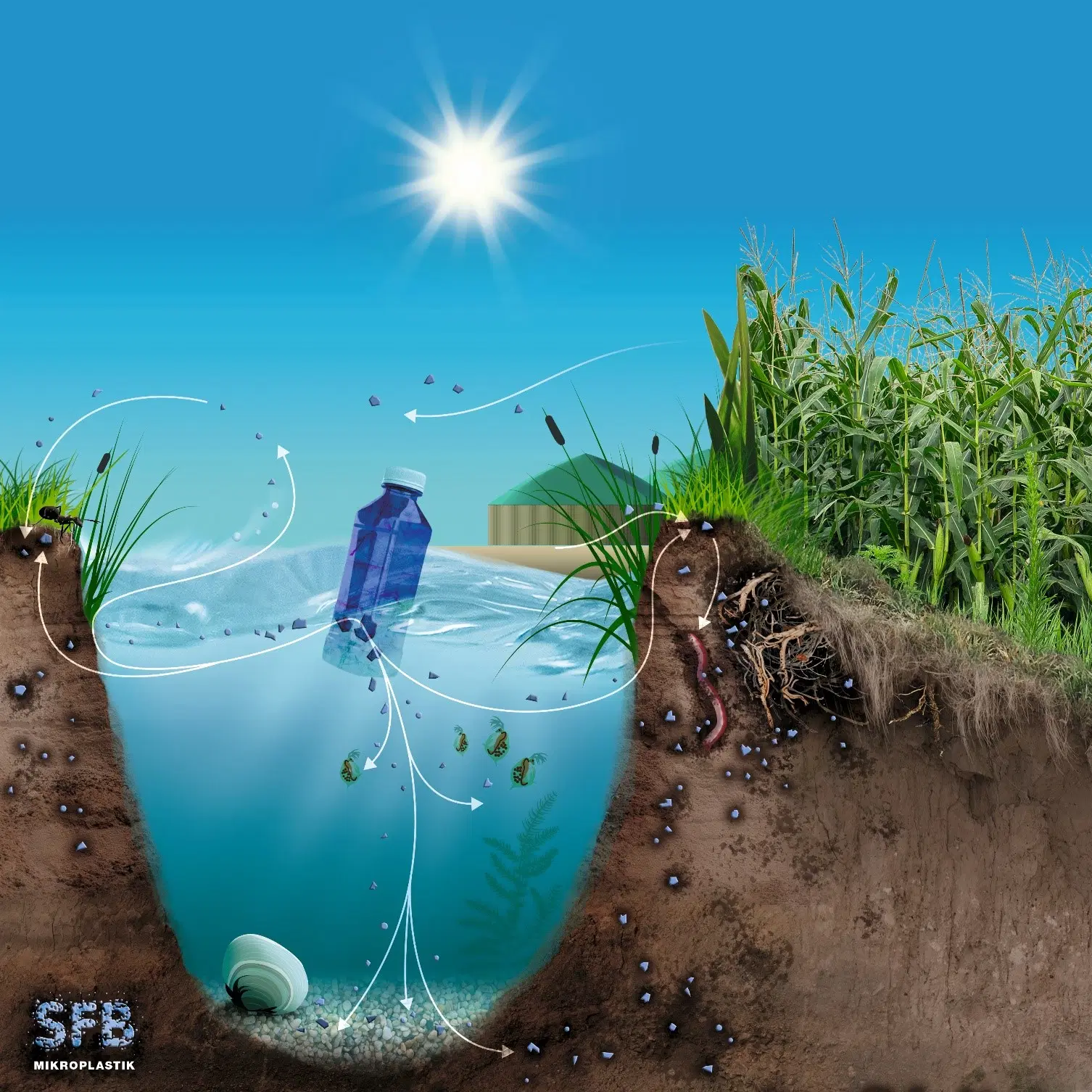
DFG extends Collaborative Research Center "Microplastics" at the University of Bayreuth
The German Research Foundation (DFG) will again fund the Collaborative Research Center 1357 "Microplastics" at the University of Bayreuth with approximately 13 million euros over the next four years. Established in 2019, the CRC investigates the increasing contamination of the environment by plastics worldwide and develops innovative solutions to counteract the resulting ecological, health and economic dangers. The close linking of interdisciplinary basic research with problem-related application research will enable well-founded risk assessments and further strengthen the transfer of knowledge to the public.
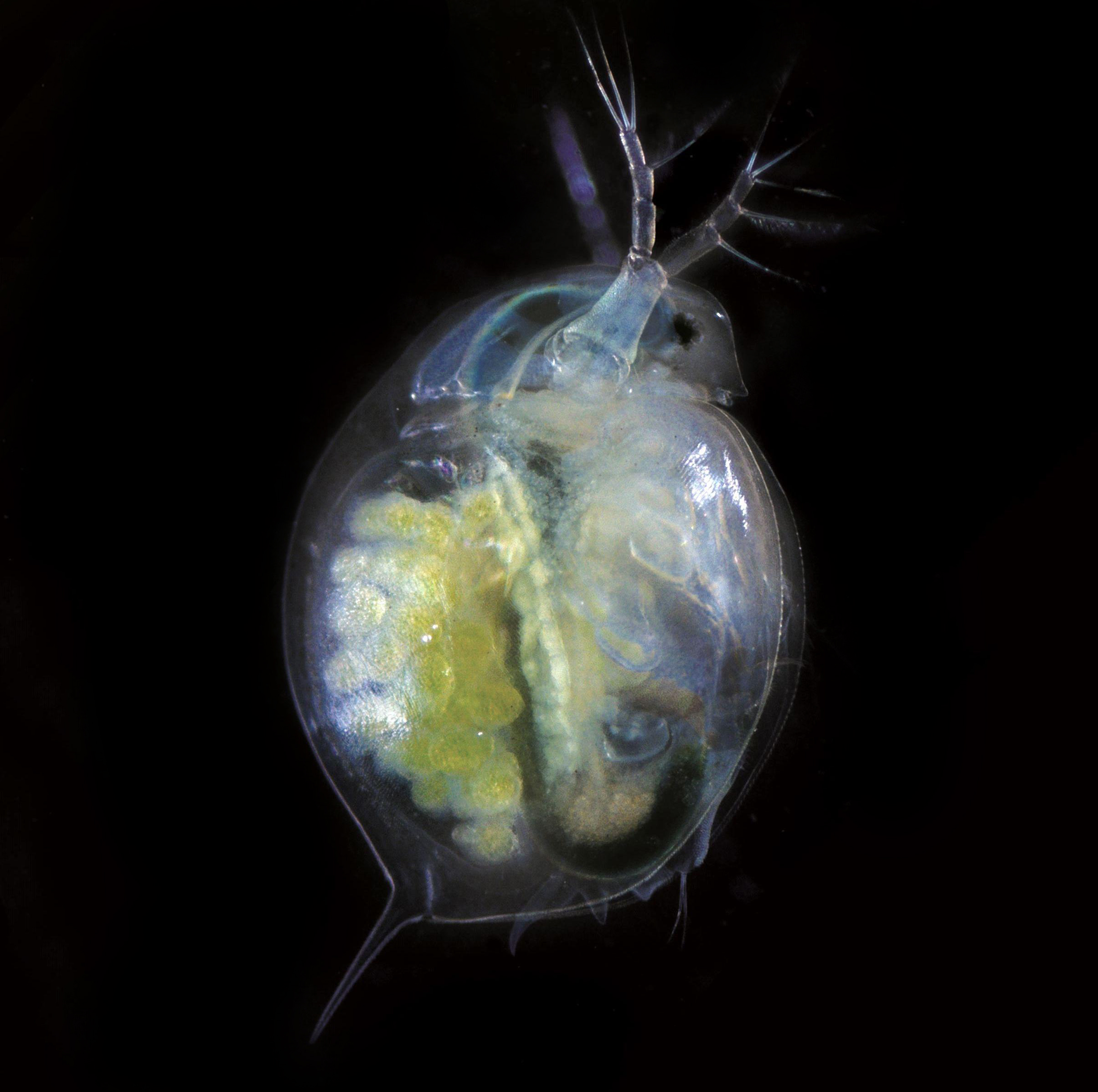
Erschienen am 25.10.2022 - © Max Rabus, UBT
Bayreuth case study discovers ecological impact of water-soluble polymers
Water-soluble synthetic polymers (WSSPs) are found in many everyday products. What the consequences are when these plastics enter rivers, lakes and oceans is still largely unexplored. A team from the University of Bayreuth has now systematically investigated the effects on water fleas of the species Daphnia magna for the first time. The polymers selected for testing significantly alter the body size and reproduction of the animals in some cases. The research, published in Science of The Total Environment, shows that water-soluble polymers could have consequences for biodiversity and food chains in aquatic ecosystems that should not be underestimated.
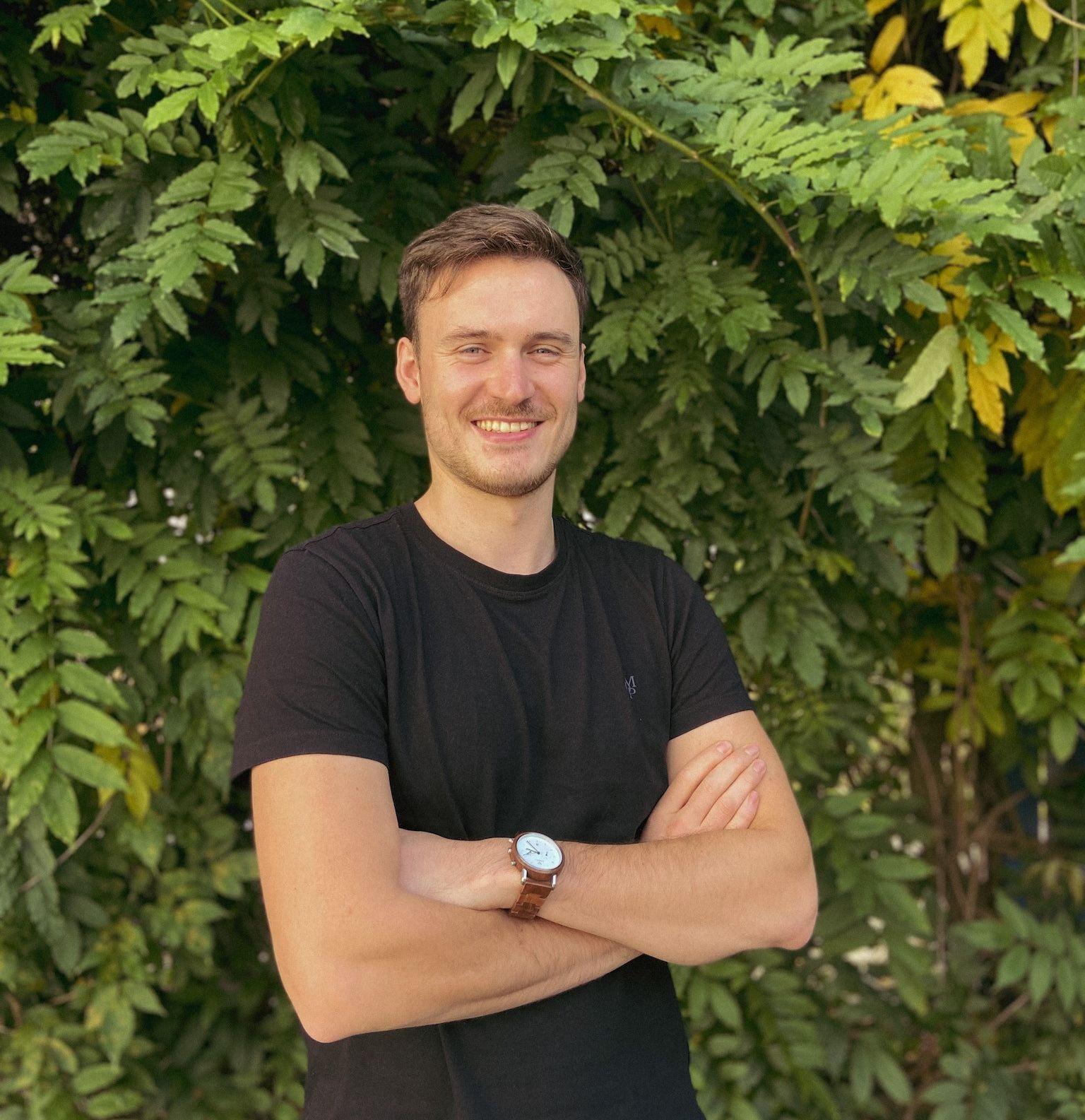
© Jens Peiffer, privat
Detecting microplastics in water: graduate of the University of Bayreuth receives VDE prize for innovative measurement method
Jens Pfeiffer M.Sc., graduate of the master's programme "Mechanical Engineering" at the University of Bayreuth, has been awarded the "Absolventen-Preis 2022 des VDE Nordbayern" by the Association of Electrical, Electronic & Information Technologies (VDE). A method he has developed makes it possible for the first time to identify microplastic particles in water with high precision and will potentially be able to make an important contribution to ecological research and environmental protection. The award will be presented on 22 October 2022, during this year's Graduate Day of the Faculty of Engineering on the campus of the University of Bayreuth.
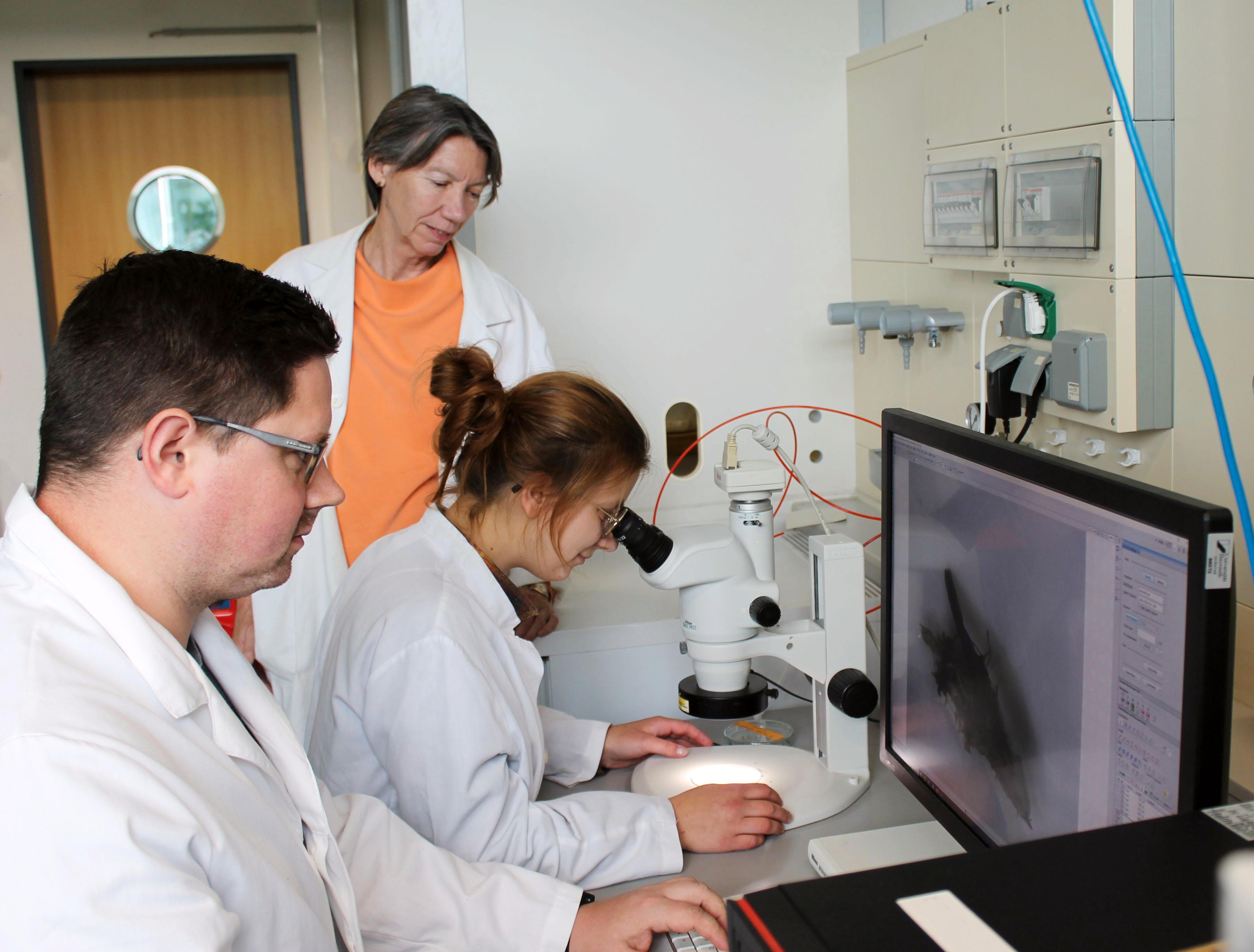
Released 28.06.2022 - © UBT / Chr. Wißler.
New study from Bayreuth: Fertilisers from composting plants contain large quantities of biodegradable plastics
Composting plants process biowaste into finished compost, which ends up as fertiliser in the soils of fields and gardens. A study by the University of Bayreuth shows that finished compost from composting plants in Germany contains a large number of biodegradable plastic particles. Applicable legal and certification standards are not violated by the sizes and quantities of the particles detected. However, the data published in "Scientific Reports" call into question the contribution of these standards to effective environmental protection. They draw into question whether biodegradable plastics are suitable for replacing conventional plastics in environmentally and nutritionally sensitive areas.
- Press Release UBT
- Original Article - Science Report
- Article Süddeutsche Zeitung
- Article FAZ
- Article Die Zeit
- Article Augsburger Allgemeine
- Article RTL
- Article Frankenpost
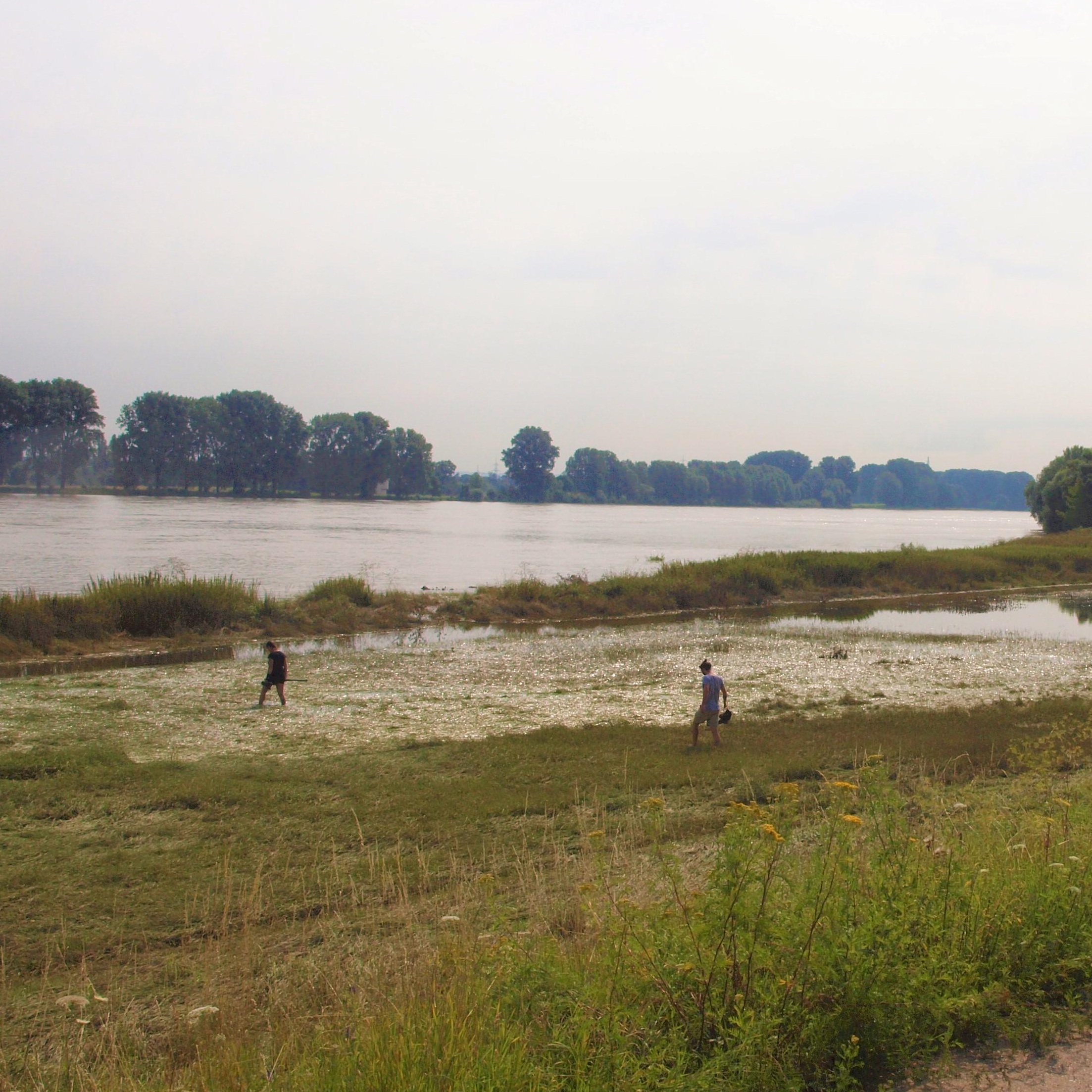
Released: 18.05.2022 - © Lukas Kienzler
New study examines microplastic pollution in Rhine floodplain near Cologne
Microplastic particles can be deposited in river floodplains and penetrate into deeper areas of the soil. The number of particles identified depends in particular on surface plant cover, the frequency of flooding, and soil properties. Researchers from the Universities of Bayreuth and Cologne determined this during investigations in the Rhine floodplain of Langel-Merkenich north of Cologne. The study, published in the journal "Science of the Total Environment", is the result of interdisciplinary cooperation in the DFG Collaborative Research Centre 1357 "Microplastics" at the University of Bayreuth.
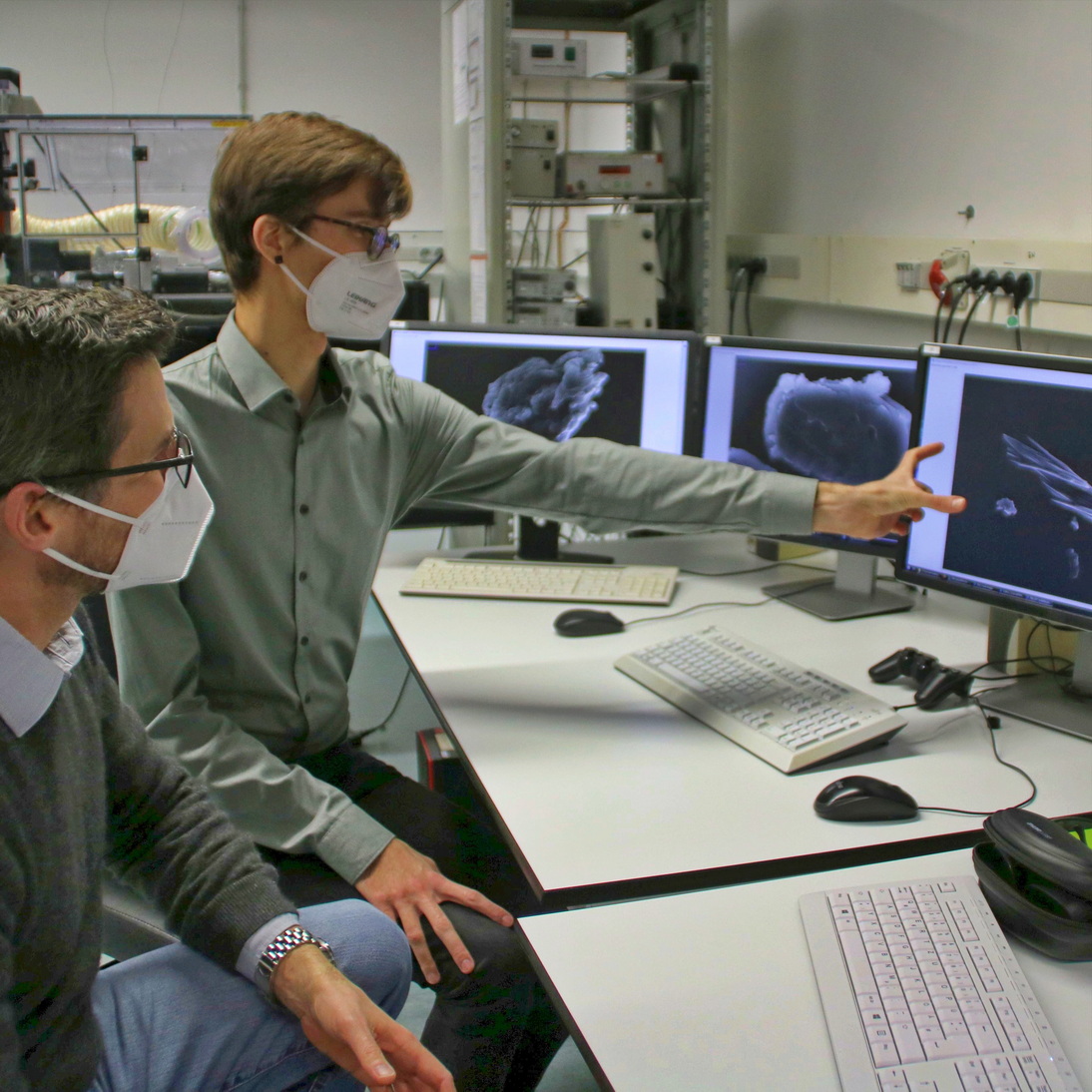
Released: 18.01.2022 - © Jennifer Opel
Learning from dust: microplastic researchers compare health risks of microparticles
What are the consequenes of inhaled microparticles?
In order to better understand them, researchers from the CRC 1357 microplastic at the University of Bayreuth have conducted an interdisciplinary study to find out how the health risks of particles such as soot, grinding dust or asbestos are related to their physical properties. By comparing them with the properties of microplastic particles, more precise statements can be made about their potentially hazardous effects on health.
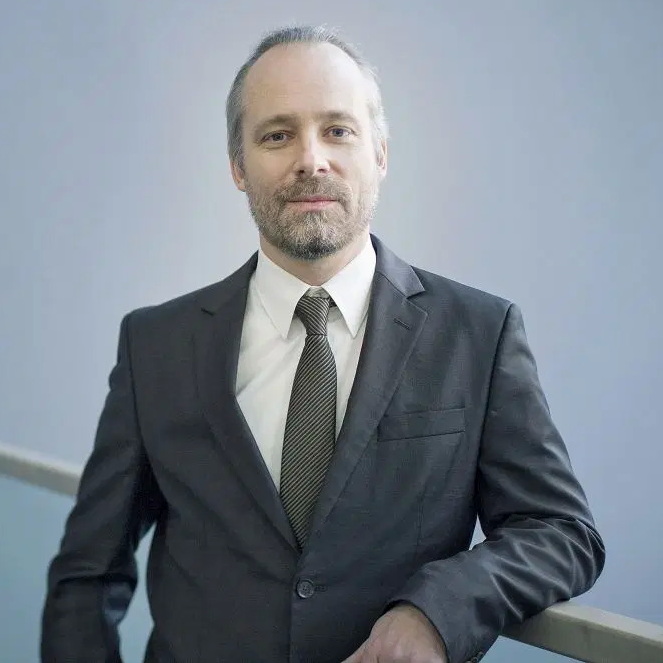
Released: 29.12.2021
Expert opinion on the plastic bag ban in Germany
The plastic bag ban will come into force on 1 January 2022. Then, with few exceptions, plastic bags may no longer be sold at supermarket checkouts. Prof. Dr. Christian Laforsch, spokesman of the Collaborative Research Centre (SFB) Microplastics at the University of Bayreuth, sees the plastic bag ban primarily as a symbolic step and emphasises the need for a true circular economy, the avoidance of plastic waste and a higher appreciation of plastics.
Nevertheless, he welcomes the current measures. In addition to the plastic bag ban, these are the ban on disposable articles and an extension of the mandatory deposit, which will be extended to all disposable plastic bottles and beverage cans in 2022..
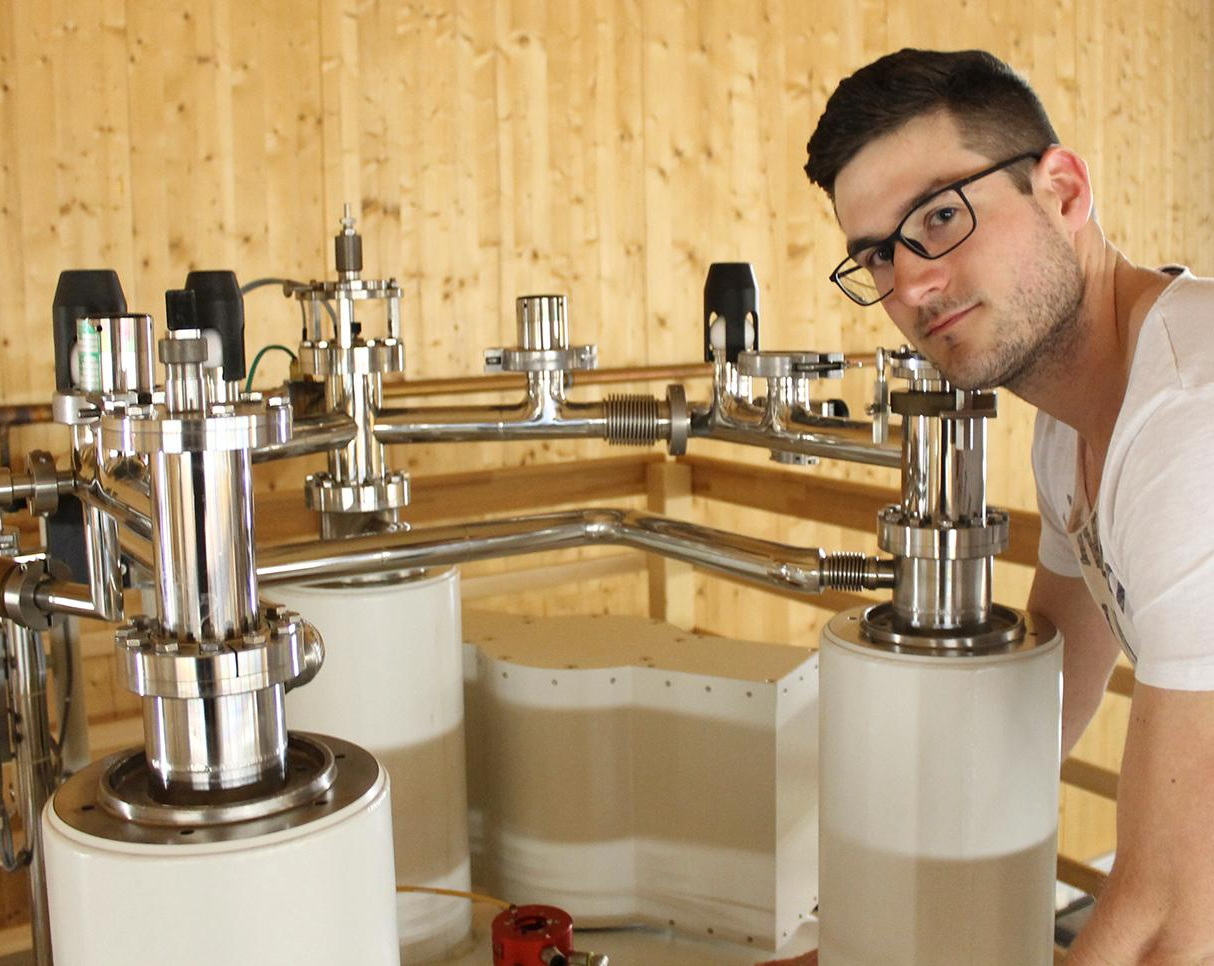
Veröffentlicht: 13.12.2021 - © C. Wißler
Supposedly similar microplastic particles show different levels of toxicity
More and more studies worldwide are looking into the effects of microplastics, especially with regard to the environment and health. They often use spherical polystyrene microparticles and have arrived at partly contradictory results. An interdisciplinary research team at the University of Bayreuth has discovered a reason for this. Commercially available, supposedly identical polystyrene particles differ significantly, depending on the manufacturer, in terms of their structure and properties. Therefore, their interactions with living cells have different consequences for cell metabolism. The scientists have presented their study in the Journal of Hazardous Materials.
- Press Release UBT
- Open Access Original Article - Journal of Hazardous Materials
- Beitrag Nordbayerischer Kurier
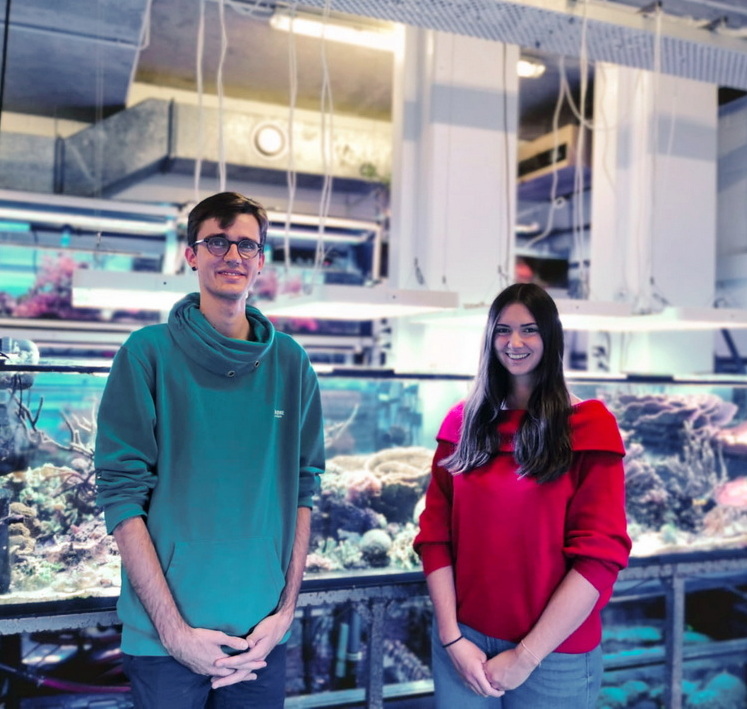
Released 22.11.2021 - © M. Pöhlmann
The third place of the Sustainability Award of the University of Bayreuth goes to Sarah Spreng and her bachelor thesis
Sarah Spreng is the third-place winner of the University of Bayreuth's Sustainability Award. Her final thesis "Investigation of adhesion between microplastic particles and cells using microfluidics" within the Bayreuth Collaborative Research Centre "Microplastics - SFB 1357" looks at the increasing contamination of the environment with microplastics. In a large number of experiments, Spreng examined microplastic particles and their adhesion behaviour to different cells. The work contributes to understanding what happens to microplastic particles in the body and what potential health risks result from them.
The work was supervised by PhD student Simon Wieland and Prof. Dr. Holger Kress (Experimental Physics VI - Biological Physics).
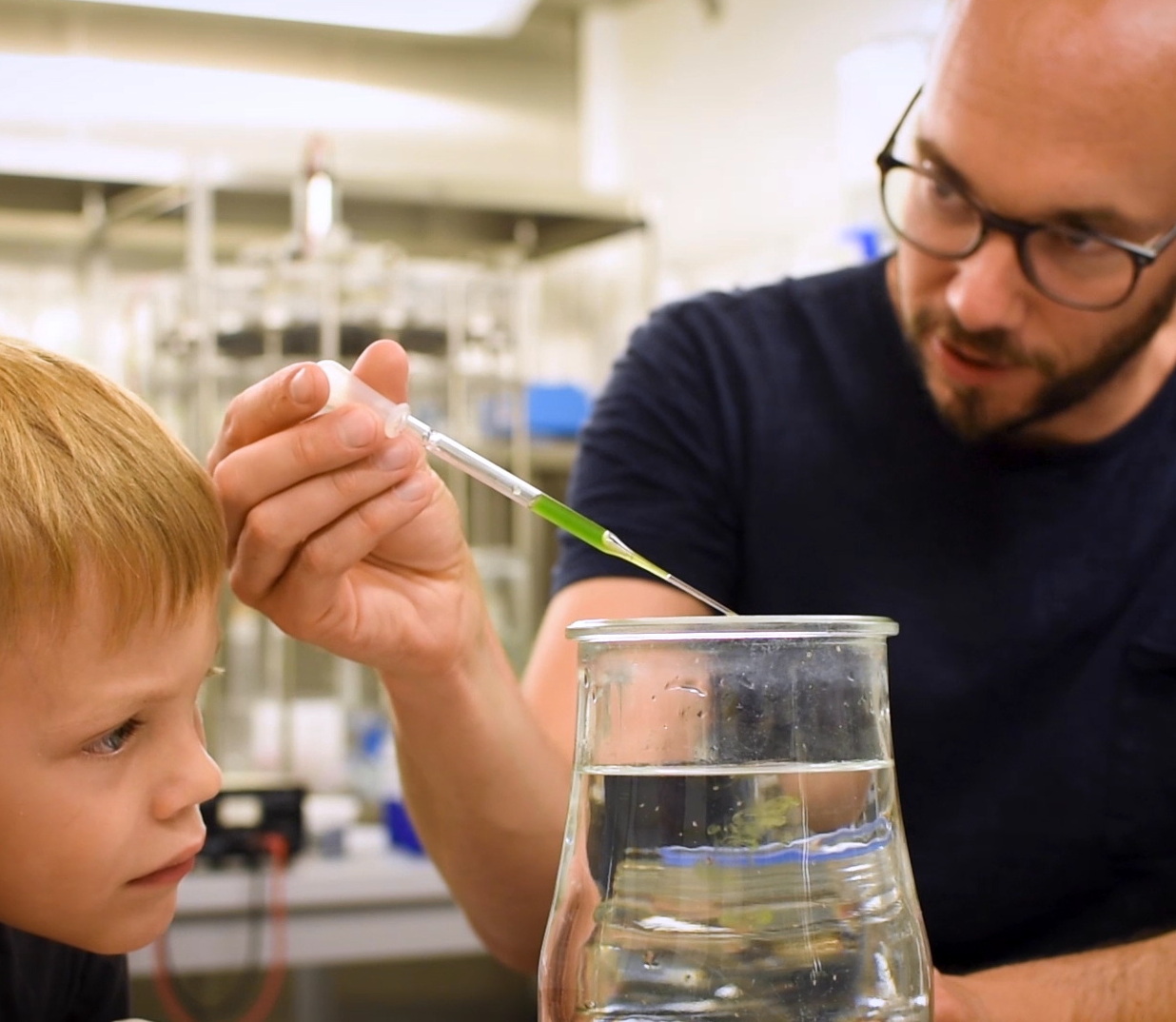
Released 22.09.2021 - © UBT
"Mouse Door Opener Day" at the Collaborative Research Centre for Microplastics and the Ecological Botanical Garden at the University of Bayreuth
Nationwide "Mouse Door Opener Day" on October 3rd - also in Bayreuth. The Collaborative Research Centre Microplastics and the Ecological Botanical Garden of the University of Bayreuth invite preschool and primary school children to look behind the doors of the laboratories. There they can discover what microplastics are and what happens to them in the environment. They can feel for themselves what properties soils have and learn about animals that occur in soils and waters. Participation is only possible after registration at anmeldung-maus@uni-bayreuth.de, the number of places is limited!
- Press Release UBT
- WDR Türen auf 2021
- News Article Nordbayerischer Kurier 29.09.2021
- News Article Nordbayerischer Kurier 03.10.2021
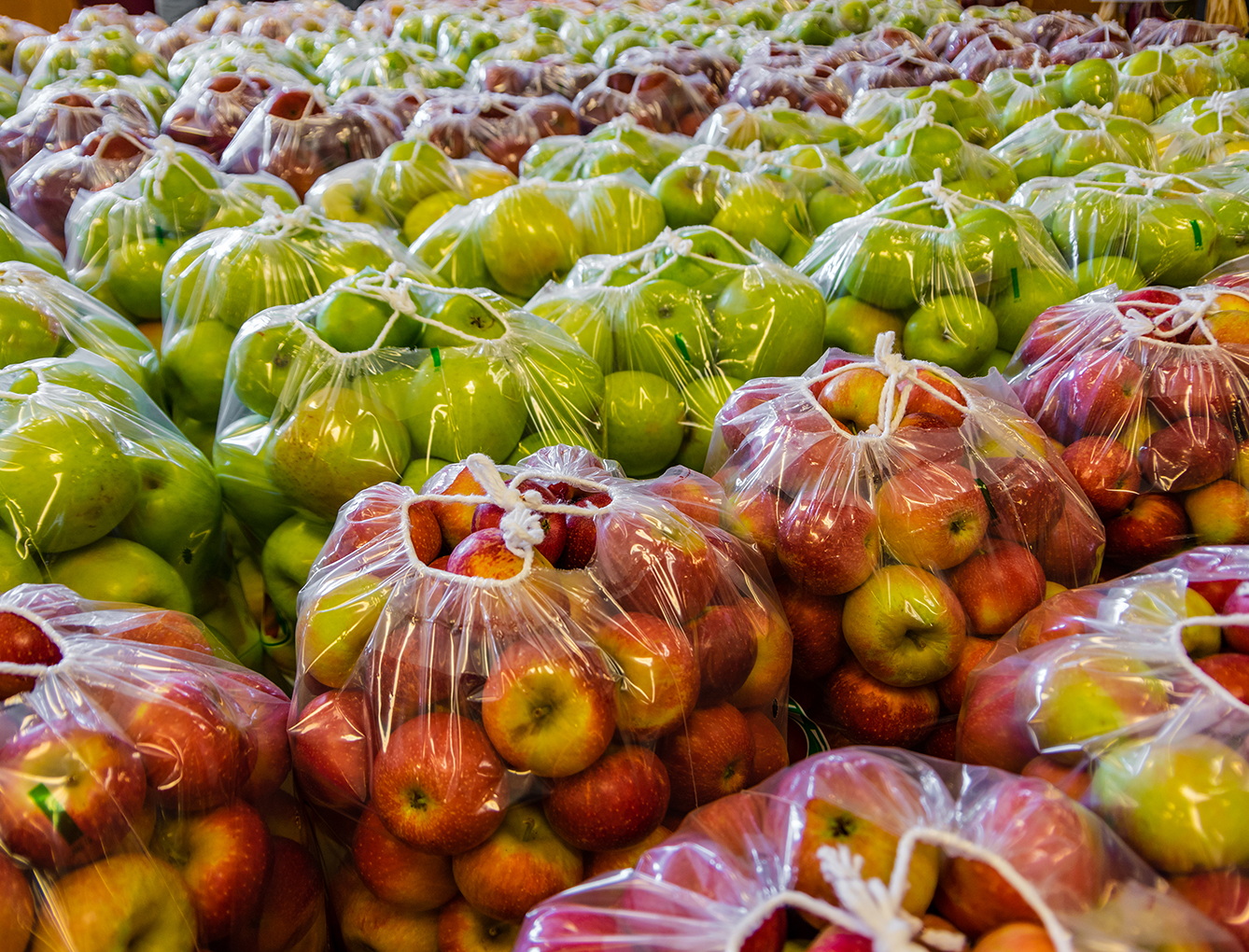
Released 08.07.2021 - © i-Stock
United against microplastics in food: New joint project strengthens cooperation between research and industry
High-tech methods for detecting microplastics in food and suitable prevention measures are the focus of the joint German-Austrian Cornet project "MicroplasticATfood", which kicked off on 1 July 2021. With its expertise in microplastic research, the University of Bayreuth is involved in interdisciplinary case studies dealing with packaging, filling lines, beverages, surfaces of solid food, and soluble foods. On the German side, the project will be funded by the Federal Ministry for Economic Affairs and Energy until 2023 to the tune of € 542,000, of which about € 275,000 have been allocated to the University of Bayreuth.
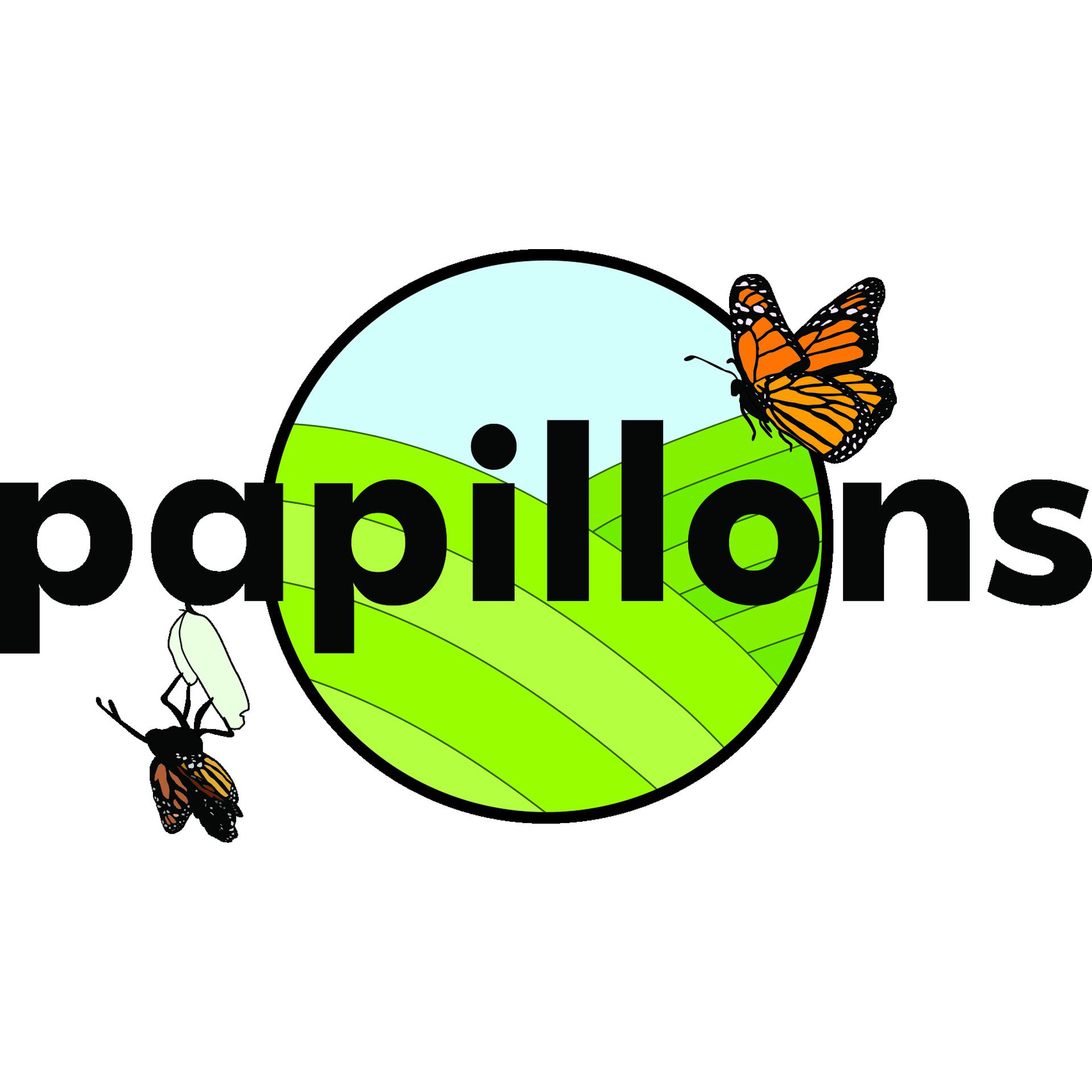
Released 15.06.2021 - © Logo Papillons
University of Bayreuth partner in new EU project on effects of micro- and nanoplastics in agriculture
The University of Bayreuth is a partner in the new European "PAPILLONS" consortium for micro- and nanoplastics research in agriculture. 20 universities and research institutions from 12 countries will jointly investigate the sustainability of plastic use in European agriculture. The focus is on the input of plastic particles and chemical additives into arable land, and their possible ecological and socio-economic effects. The European Union is funding the project until 2025 to the tune of € 7.2 million in total, of which € 600,000 euros have been allocated to the University of Bayreuth. At a virtual kick-off meeting on 14 and 15 June 2021, the research partners agreed on what the next steps in their work would be.
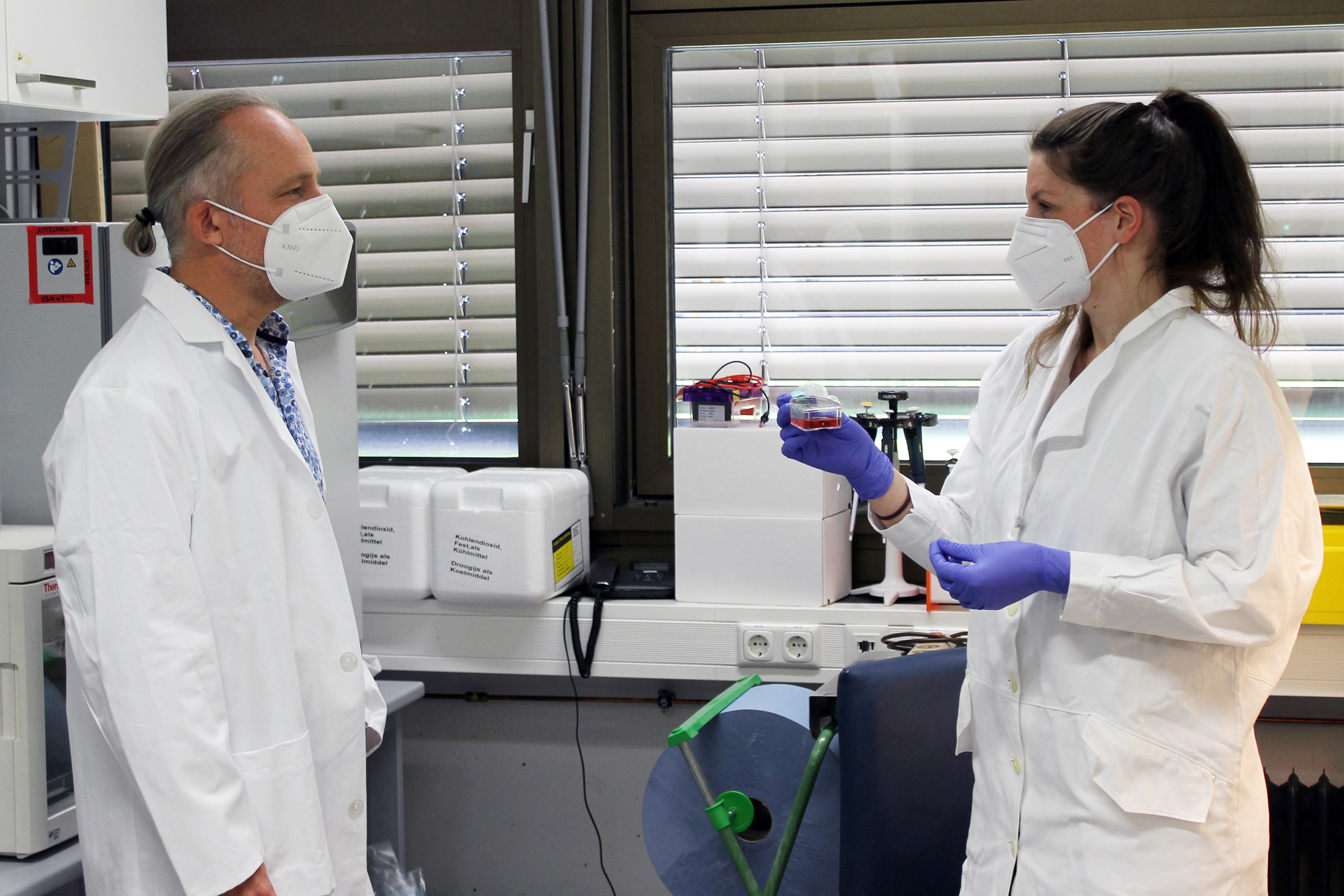
Erschienen am 28.04.2021 - © Christian Wißler
New European project investigates health effects of plastic particles on humans
Researching the effects of plastic particles on the human organism and developing a health policy strategy for assessing the resulting risks is the goal of the new European research network PlasticsFatE. The University of Bayreuth and 26 other universities, institutes and organisations from ten EU member states are participating in the project. The European Union is funding the four-year project with around six million euros, with the University of Bayreuth accounting for more than 465,000 euros. The project was launched on 28 April 2021 at a virtual kick-off event for the partners.
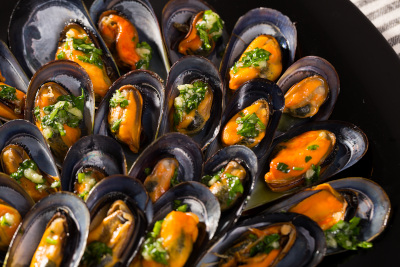
Released 16.12.2020 - © iStock/JackF
Bayreuth study: the most consumed species of mussels contain microplastics all around the world
"If you eat mussels, you eat microplastics." This was already known to a limited extent about mussels from individual ocean regions. A new study by the University of Bayreuth, led by Prof. Dr. Christian Laforsch, reveals that this claim holds true globally. The Bayreuth team investigated the microplastic load of four mussel species which are particularly often sold as food in supermarkets from twelve countries around the world. The scientists now present their research results in the journal "Environmental Pollution".
- Press Release UBT
- Open Access Original Article - Environmental Pollution
- News Article Yale Environment 360
- News Article New Food Magazin
- News Article Science Daily
University of Bayreuth Study: Natural environmental conditions facilitate the uptake of microplastics into living cells
The environment is polluted by microplastics worldwide. Tiny particles enter food chains, and thereby the digestive systems of animals and humans; moreover, they can be inhaled. Instead of being excreted, small microplastics can be incorporated into the body tissue. A research team at the University of Bayreuth has now discovered that microplastic particles find their way into living cells more easily if they were exposed to natural aquatic environments, i.e. fresh water and seawater. The researchers have presented their results in the journal "Science Advances".
- Press Release UBT
- Open Access Science Advances Studie
- News Article "New Scientist", Layal Liverpool
- News Article "Inverse", David Grossman
- News Article "EHN News", Kasra Zarei
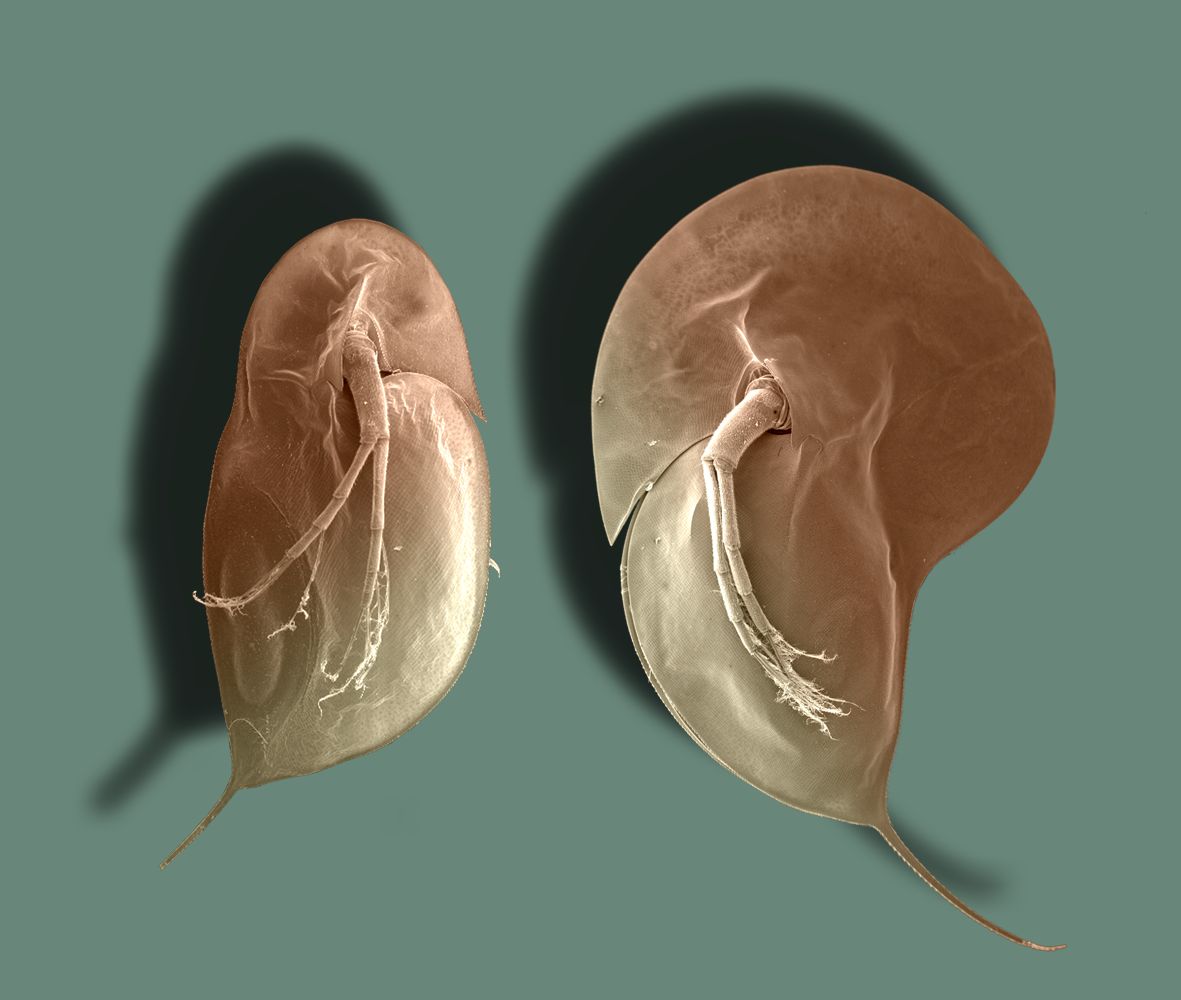
Released 12.04.2019
Plastic waste disrupts communication: Bayreuth study shows risks for ecosystems
Plastic waste affects organisms living in water in a way that has received little attention so far: Messenger substances that are indispensable for communication under water accumulate on the surface of plastic particles and can thus no longer fulfil their ecological functions. Scientists at the University of Bayreuth show this in a new study using water fleas as an example. The animals form defence structures when messenger substances signal to them that they are threatened by predators. However, the defences are significantly weaker as soon as there is plastic waste in the water. The scientists present their findings in Scientific Reports.
- Press Release UBT
- News Article "Umwelt + Natur"
- News Article "MDR Wissen"
- News Article "Bioökonomie"
- News Article: "Plastikmüll macht Wasserflöhe gefahrenblind"
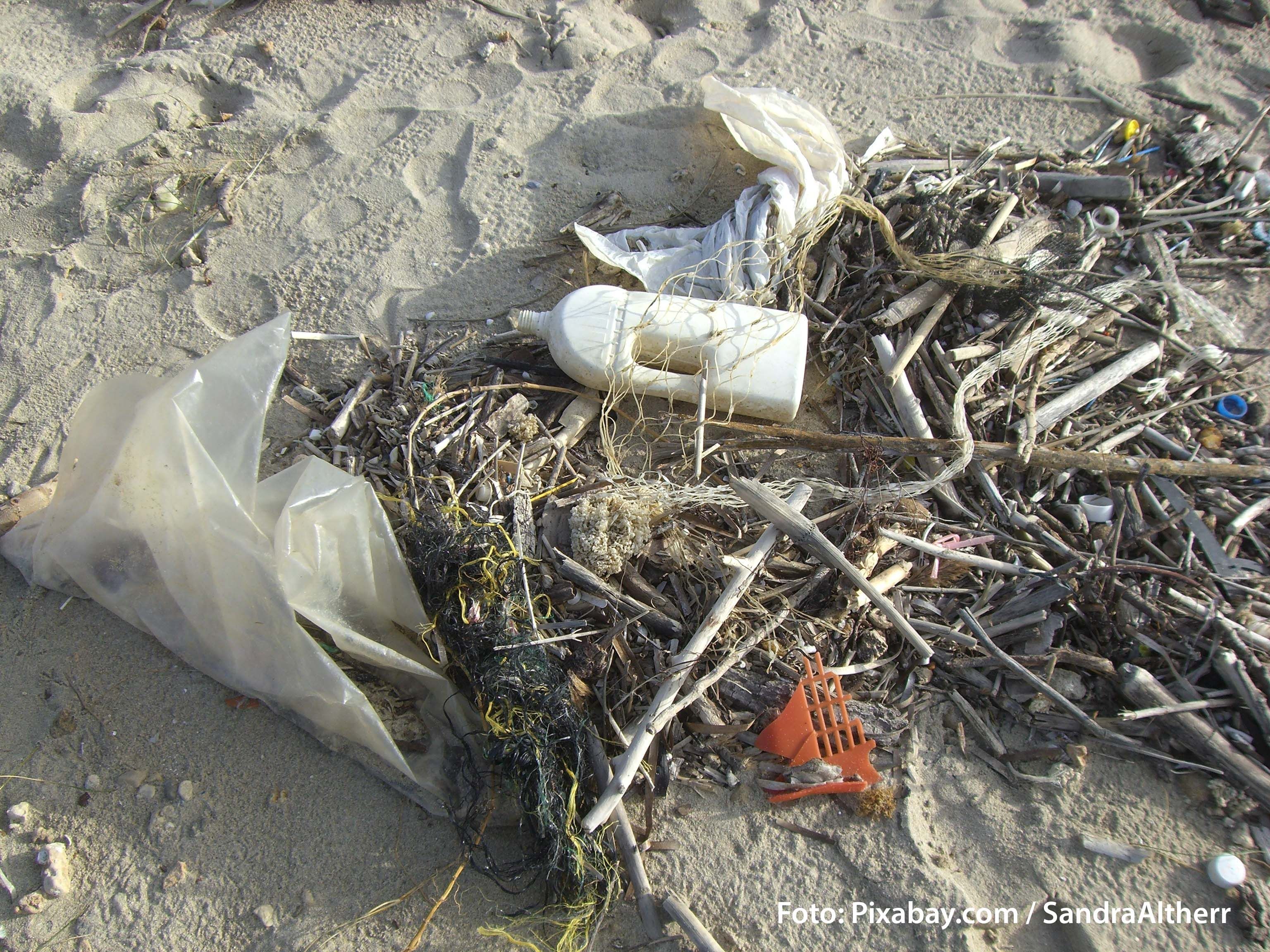
Released 25.03.2019 - © wwf
In 100 places at the same time: Microplastics expert from the University of Bayreuth in Livestream – discussion by WWF and VHS
"How do we stop the plastic flood?" is the title of an interactive lecture event offered by the World Wildlife Fund (WWF) Germany and the German Adult Education Association (VHS) with Prof. Dr. Christian Laforsch, holder of the Chair of Animal Ecology at the Faculty of Biology, Chemistry and Geosciences at the University of Bayreuth. On-site at the Bayreuth VHS and via Livestream in more than 100 VHS at the same time, viewers can actively participate and ask their questions directly to the experts on 27 March 2019.


